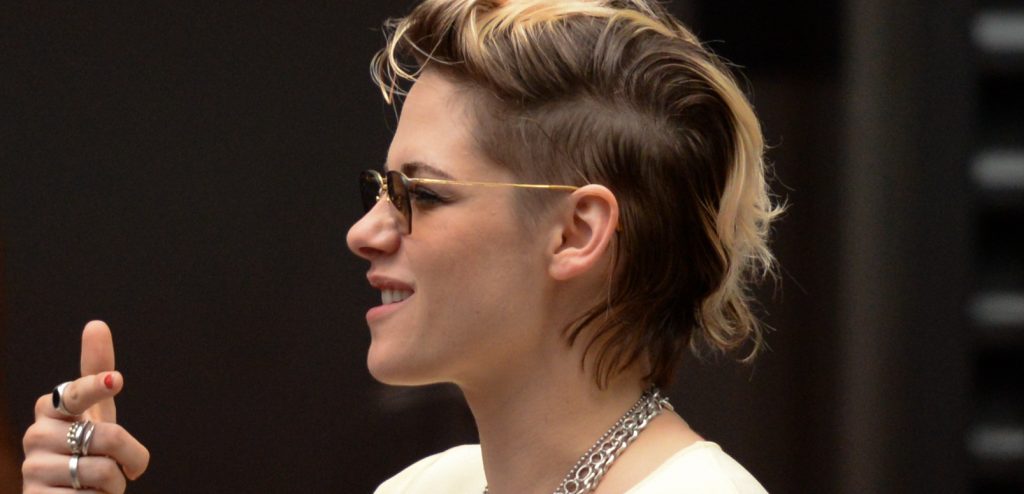Lesbian actress Clea DuVall has taken it upon herself to direct a Christmas movie for the queer community. Happiest Season explores family dynamics in depth, going beyond just the experiences of the queer community and portraying a family so obsessed with perfection that each members’ life becomes a performance. Mackenzie Davis and Kristen Stewart star as Harper and Abby, a lesbian couple who is coming to spend Christmas with Harper’s family. Only Harper is still closeted, a fact she reveals en route to her family’s Christmas.
Happiest Season advertises itself as a romantic comedy, but its success is in the latter rather than the former. Dan Levy plays Abby’s gay best friend, John, and his natural wit truly render every scene he’s in iconic. His more extroverted comedic style provides a perfect contrast to the equally entertaining introverted performance of Kristen Stewart, essentially creating a comedic foil that makes for a genuinely heart-warming friendship. Aubrey Plaza plays Harper’s ex, Riley, and her dry humor meshes well with Stewart’s own brand of humor, adding even more variety to the comedic styles present throughout the movie. These 3 actors carry the bulk of the comedic scenes and the film is all the better for it.
The one stark flaw in the film’s comedy is Harper’s sister Jane, played by Mary Holland, whose mistreatment is played for laughs. Jane exhibits behavior that is synonymous with forms of neurodiversity and is ignored and made fun of for it. When she finally stands up for herself, the moment is played for laughs and her parents proceed to act so condescendingly it proves they haven’t learned anything. Jane herself, however, is delightful and easily the best character in the entire film. Her happy ending is not only earned, but is genuinely the best part of the last 5 minutes of the movie.
Subsequently, there lies the problem of Harper and Abby’s romantic relationship which is either underdeveloped or misrepresented. Happiest Season focuses on representing Harper in the most negative light, showcasing all the flaws highlighted by her frantic attempts to remain in the closet. While this represents a more nuanced take on the unfortunate actions some closeted gays will take to protect themselves, this does not help the romantic plot progress. The supposedly romantic plot of the movie takes a hit because of this choice to focus on how poorly Harper treats Abby.
As Youtuber MelinaPendulum pointed out, we aren’t shown why we should be rooting for their relationship. Only the first 8 minutes of the movie show a healthy, loving relationship between the two, and the rest of the film is dedicated to Harper continuously taking advantage of and abandoning Abby until Abby can’t take it anymore. This has led to many queer viewers preferring Riley as a possible love interest for Abby, despite these two characters not getting much romantic development either beyond the natural chemistry of the actresses.
The problem with Harper and Abby’s relationship isn’t that there are problems or even that Harper’s actions while in the closet are deplorable. All of this is realistic and exposes common consequences of being a queer person who doesn’t feel safe in a family environment. Certain things are done for the perceived safety of the closeted person that are perceived by most as quite toxic. And while this doesn’t mean the closeted person is a monster, it doesn’t excuse their actions.
Ultimately, this aspect of Harper and Abby’s relationship can make it hard for queer women watching to root for the two. The film ends up being more stressful than anything else as viewers see Abby bend over backwards to accommodate her closeted partner while her partner does nothing to make her feel wanted or comfortable. This behavior is meant to be seen as abnormal, as the result of a queer person coming back to an unsafe environment, but we aren’t shown enough of Harper’s behavior when she’s not around her family to be assured of this. The tragedy of her change in behavior is lost on the viewer as so little of the screen time is dedicated to establishing Harper as a usually pleasant partner.
Closeted queer people and queer people with less than accepting families will find some kind of kinship with Harper’s predicament and the pressure she feels from her family. And John’s final speech to Abby about the varying experiences in coming out and the perspective of closeted people rings true for many queer people who still don’t feel safe or comfortable being who they are. Conversely, Abby’s statement that she cannot date someone who isn’t out is also shown as a valid stance in the film. The nuances of dating a closeted person are explicited through Dan Levy’s performance especially as the audience is made to understand that closeted people and gay people who refuse to hide their relationships are both valid. The scope of queer experiences is too complex and Happiest Season’s final scenes speak to that.
The film is still a move in the right direction, however, as it not only represents a lesbian story around Christmas, but also is another addition to the unfortunately short list of wlw movies with a happy ending. While we should scrutinize and criticize the film for where it fails, it’s important to support queer representation in the mainstream, especially given how much traction this film has had. As companies see how well queer films can do, the diversity and quality of representation will continue to improve. Despite its issues, Happiest Season is an enjoyable watch and the performances of Kristen Stewart, Mackenzie Davis, Dan Levy, Mary Holland, and Aubrey Plaza truly make it a film worth watching.

